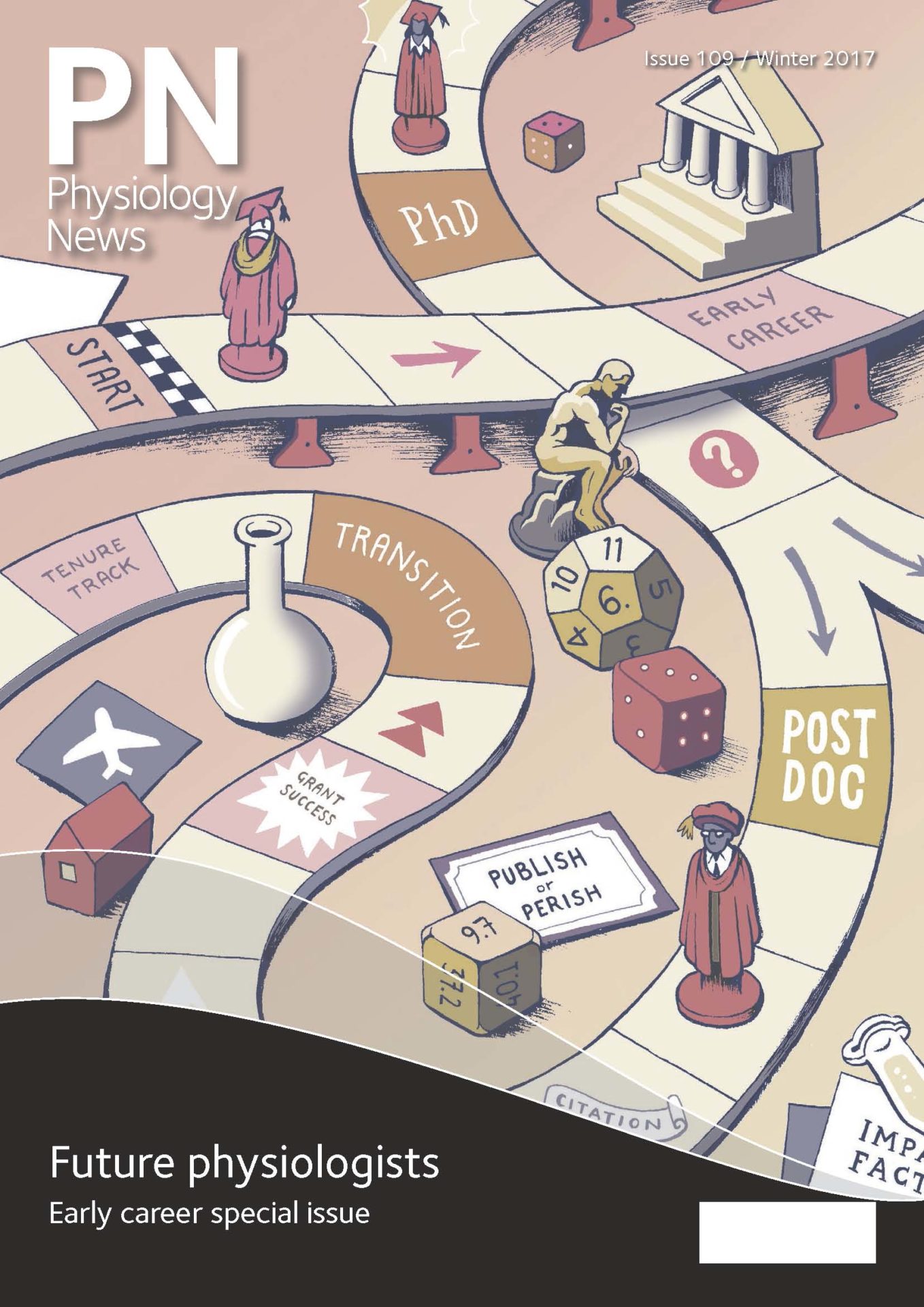
Physiology News Magazine
Editorial
News and Views
Editorial
News and Views
Hannah Marie Kirton
Cardiovascular Research Fellow, University of Leeds, UK
Affiliate Working Group, The Physiological Society
https://doi.org/10.36866/pn.109.5
It has finally arrived! No not Christmas, but a special Early Career Researcher edition of your favourite magazine! The Affiliate Working Group has had the enviable pleasure of guest editing the Winter 2017 edition of Physiology News. I’ve been thrilled to lead on this endeavour.
As our front cover illustrates, the road to academic success is challenging. For those pursuing a career in academia, the linear path from PhD to postdoc to lectureship now exists only for a select few. In a turbulent time of declining funds, Brexit negotiations and debates over metrics (namely impact factors and citation rates), early career researchers face more time in their glorious white lab coats. One thing however is certain, early career researchers must clear their own path to success, and whilst there may be disheartening stumbles, fame (but not fortune) for those remaining in academia can be achieved.
In this edition, we’ve chosen to highlight early career research success, including a feature interview from a L’Oréal UNESCO Fellowship awardee, Dr Annie Curtis. Annie shares her journey, providing realistic tips and advice on fellowship applications and how to be optimistic in your approach. Furthermore, Jo Edward Lewis compiled an article that details how there is no ‘one size fits all’ for scientists, demonstrating the diversity within scientific careers from undergraduate to lecturer. In ‘The postdoc problem’, I highlight the good, the bad and the ugly of academia and what it is like to be an early career researcher, outlining what is required of academia to recognise and facilitate talented, thirsty researchers in their pursuit of success. Kim Barrett, Editor-in-Chief of The Journal of Physiology, also lends her insight on the key factors leading to publication success.
Despite the challenges ahead, I see outstanding, inspiring early career research that is highly recognised in physiology. In this issue, we display several examples – Jessica Piasecki, at Manchester Metropolitan University, emphasises the importance for elite female athletes to lead healthy lifestyles, and the importance of balancing training needs whilst maintaining bodily health and a regular menstrual cycle. Emmanuel Amabebe, at the University of Sheffield highlights how C-section impacts on the early-life microbiome and immune system, and influences disease susceptibility. We also have a revealing article explaining the key questions about blood sampling sites. This is important in terms of experimental design, and influences data interpretation, so do watch where you put that cannula!
The Affiliate Working Group would like to thank The Physiological Society for providing the opportunity to guest-edit and share our thoughts with Members. Although being early career researchers is a challenge, it has never been a more exciting time to be the future generation of science. Physiology offers a multitude of opportunities, exciting prospects, cutting edge research tools, and a great foundation for collaboration and outstanding research.
So go find yourself somewhere quiet, and enjoy reading this issue over a warm cup of coffee, hopefully while you’re at our Leeds conference, Future Physiology.
